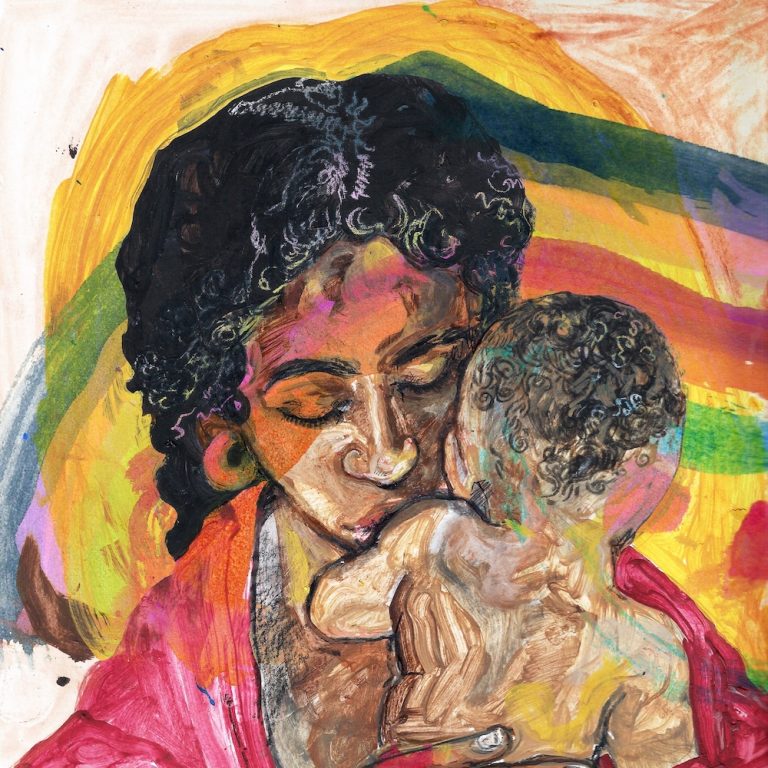In an excellent Guardian essay, released only last month, Jason Okundaye discussed the rise of ‘black trauma porn’. He cited an Art in America essay by the academic Zoé Samudzi, who wrote, “Where Blackness is en vogue and atrocity images are a hot commodity, it becomes difficult to produce a commentary or satire that does not read almost identically to the quotidian flows of violence.” After the success of Jordan Peele’s Get Out and Us, which tackled racial politics in a complex way, a succession of lesser imitators followed. Okundaye particularly highlights the example of the Amazon series Them: he accuses the show’s creators of being ‘sadomasochists’ and ‘exhibiting extremes of Black suffering’. This, it often seems, is the only way the Western White population can view Black art, positioned in pain and trauma. This is something that McKinley Dixon contends with on his album For My Mama And Anyone Who Look Like Her.
Previously noted for two well-received self-released projects, this full-length expands on the Virginia artist’s unpacking of the Black experience. In an unfolding narrative which could be considered a thesis, Dixon emphasises the commodification of Black art by White people: where Black art often seems like it has to have a greater point, a higher purpose – indulging in traumatic images of violence in racial horror, as in the above case – white people, contrastingly, get to make whatever art they wish.
The album is a riposte to being pigeonholed, to feeling suffocated. This extends to the musicality too, Dixon long acknowledging the constraints of being called a ‘rapper’, as if this is a lazy and easy encapsulation of his sound. There is far too much going on in these tracks to merely call it a ‘rap’ album, certainly, much of it being reminiscent of the freeform jazz that coloured Kendrick Lamar’s To Pimp A Butterfly. This connection shows itself most prominently on the twinkly opener “Chain Sooo Heavy” and “brown shoulders”, resplendent as it is with a swooning and carefree saxophone.
The jazz is sometimes frenzied, sometimes calm, depending on what the lyrics require. Dixon isn’t afraid to revel in disconcerting rhythms, as on “B.B.N.E.”, its strings almost sounding like the soundtrack to There Will Be Blood, filled elsewhere with unsettling sirens. For My Mama… swings from bombastic and buoyant (“Swangin’”) to dreamy and subdued (“Bless The Child”). The contrast seems to reflect the conflicts within Dixon himself: wanting to feel empowered to become the person he wants to be, but weighed down by anxieties and trauma, these always waiting to emerge from his subconscious.
Dixon is often overcome by death on the album (he lost a close friend in 2018) and by the heaviness of generational trauma. “A dance with the devil / anxieties, trying me,” he sighs on “Never Will Know”; “In search of a level of peace / That I’d never reach / Convinced I won’t get there til I’m deceased,” he contends sadly. In “brown shoulders”, an angelic choir – one imagines it as his ancestors – looks down upon his journey and cries, “How’s God blessing you?” These watching eyes are also called upon in “Bless The Child”, a man’s voice stating “They’re counting / On You / They know / You dream for them too.”
Dixon is a complex lyricist. He indulges in dense references, mentioning everything from Aesop to Chris McCandless to Icarus. He’s a magnetic performer too, often sounding like he’s run out of steam just trying to keep up with his own challenging thoughts and lyrics. The lead single, “make a poet Black”, has already been much-discussed, and rightfully so. As Dixon switches between different personas, determinedly fighting his insecurities and mental health, he ponders the connection between trauma and the necessitated relief of creating art. It’s a dark and prophetic journey into its creator’s very depths, the eerie strings and crude piano tumbling around us as we descend. “They not gone feel this / You know that right? / You need some healing / This pain you concealing / There’s so much more to life,” he says, reinforcing this idea that the way Black trauma is presented might not be the healthiest choice.
Violence may remain in Dixon’s work, but it’s balanced by a true sincerity (remember the album’s title). On the light “Protective Styles”, Dixon is forthright as he urges the necessity of therapy for his ‘sisters’. His ‘Mama’ and ‘Grandma’ are frequently mentioned throughout, always on his mind. The transcendent tenderness of “Mama’s Home” is profoundly moving, as Dixon shows his deepest vulnerabilities: “These demons haunt me / Mama, keep them off me,” he begs amidst cascading keys and solemn sax. It’s sentimental but it’s necessary sentiment, Dixon not hiding anything. “Still tryna be a man / But can I break down for a second,” he begs again, and this regression to an almost child-like state is an act of humility and admitting that sometimes, no matter the man, it’s ok to not be ok.
In that Art in America essay, Samudzi starts it as follows: “In another world, Black artists would be able to create, primarily, for audiences with whom they share a culture. But today, more often than not, they are assimilated into, and made legible within, the Western visual regime.” Much of what Dixon seems to be reaching for on For My Mama… is this ‘another world’. He is a true poet, but not blessed with space and freedom of thought, instead overwhelmed by trauma and power and destiny. By using his art not to merely portray, but to excavate, his music becomes self-healing for now. Let Dixon himself have the last words, taken from “Chain Sooo Heavy”: “Orchestrate the way we live / Manoeuvre through the pain that they give… You stronger than what they say you is.”

